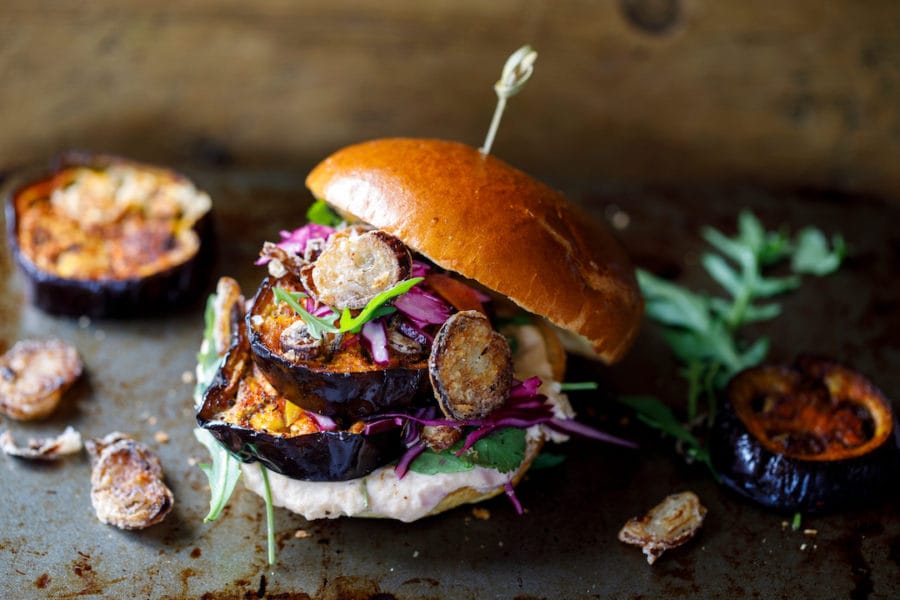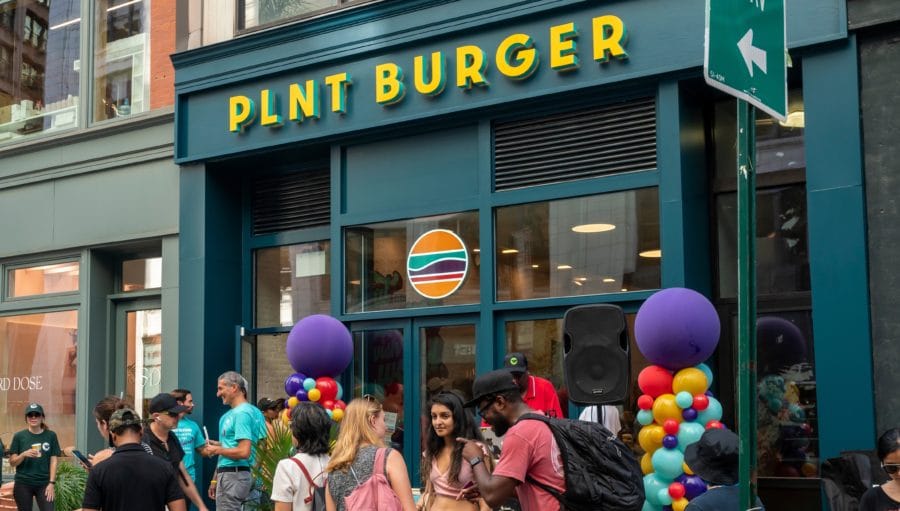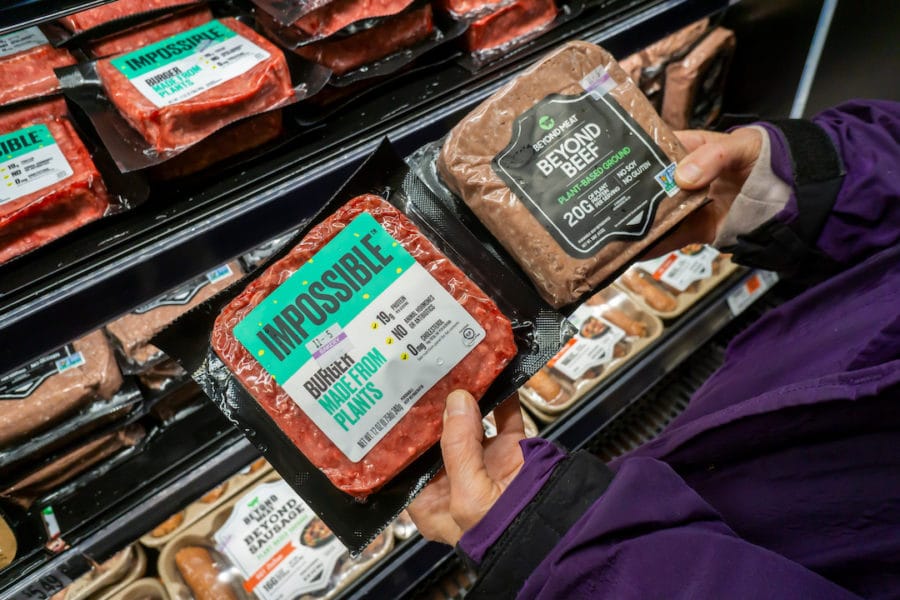
VEGANISM: BEYOND THE TREND
by Aisha Claxton
on 29/01/2024
Every January, thousands of people pledge to take the plunge and become completely vegan (even if only for a month!). The annual challenge allows people to trial a vegan diet, experiment with recipes and feel the benefits of a post-Christmas health kick, while discovering just how easy it is to make healthy swaps day-to-day. In fact a study by Veganuary.com suggests that, 25% of those taking part in Veganuary planned to stay vegan long-term, and a whopping 72% had halved their intake of animal products.
In 2023, over 700,000 people signed up to take part from over 200 countries around the world. To accommodate this annual surge in interest, January often sees a huge increase in vegan products coming to market. Last year 1.6K new vegan products were released over January, and more than 700 were added to chain restaurants’ menus.

More than a trend…
In 2022, the global plant-based retail market was valued at $44.2 billion USD, rising to $52.2 billion in 2023. This is predicted to reach $64.7 billion in 2024, and by 2030 Bloomberg estimate that the vegan market share will reach a value of $162 billion globally.
So, with a significant amount of cash being spent, is it time that hospitality and retail take Veganism seriously? Once thought to be a passing trend, the numerous health benefits of veganism (not to mention the relatively lower cost) have meant that the plant-based market is continually growing.
On the menu
Gone are the days of awkwardly hobbling together a last-minute main from veggie side dishes; restaurants are compelled to cater properly for this growing audience and are now developing more and more vegan menu options. As a testament to the popularity of plant-based eating, some pioneering chains such as Wagamama and Wahaca have balanced the number of vegan meals with the number of standard menu items, but why are some venues dragging their heels?
While vegans are used to searching for the scattered ‘Ve’, ‘Vv’ or leaf symbols, many meat-eaters can be put off by a menu inundated with labels. Many brands have found that the solution lies in a separate vegan menu, allowing these same dishes to appear more subtly on the main menu to a wider audience.
This technique increases the likelihood of a meat-eater choosing a vegan option; evidence from a 2019 study shows that simple factors such as default food offerings, symbols, language and even menu placement can alter food choices. By framing the environmentally sustainable option as the default on a menu (e.g. place directly under the subheading, in a pop-out box, etc), consumers will choose plant-based meat alternatives more frequently relative to the meat option. – Science Direct.
Whether it’s handing out separate physical menus or offering online dietary filters, many brands are embracing this method, and making the selection process easier for vegans, whilst not negatively framing plant-based options for the remaining customer base.

To label or not to label…
Despite some of our favourite dishes being naturally vegan (hello, beans on toast!), as a nation we are generally sceptical when it comes to plant-based mains and are less likely to order a meal when labelled ‘vegan’. So how can brands navigate a wider hostile market?
Simple language changes are shown to influence purchasing behaviour and can increase the likelihood of a usual omnivore choosing a vegan option. Indulgent, descriptive food descriptions have been shown to have more positive associations than the phrases ‘vegan’, ‘plant-based’ and ‘meat-free’. By shifting attention away from the word ‘vegan’ and onto taste-specific language, consumers are more likely to consider plant-based products.
While dancing around the term may benefit those looking to make healthier choices, is it alienating vegans? Most vegans have been through the painstaking process of reading the back of packets, in search of tiny-lettered allergens or a subtle ‘suitable for vegans’ label. How can brands balance the needs of their current market with the wants of a potential, much wider, public?

Hitting the mainstream
If the popularity of Veganuary is anything to go by, most people are open to the idea of reducing their intake of animal products- whether for health, animal welfare, or for environmental reasons.
Education from Meatless Mondays, more readily available vegan convenience foods, and the onslaught of free recipes online have meant that making these changes is easier than ever.
Why not check out some of the vegan brands we love in the ‘Plant based’ section of our Tasty100 favourite brands of 2024.
Bio: Aisha Claxton – Account Manager
Aisha is an expert in all things marketing, with a MSc in International Marketing Strategy and over 6 years of experience in creative agencies. As a true foodie, she loves trying out new vegan foods in her spare time.



